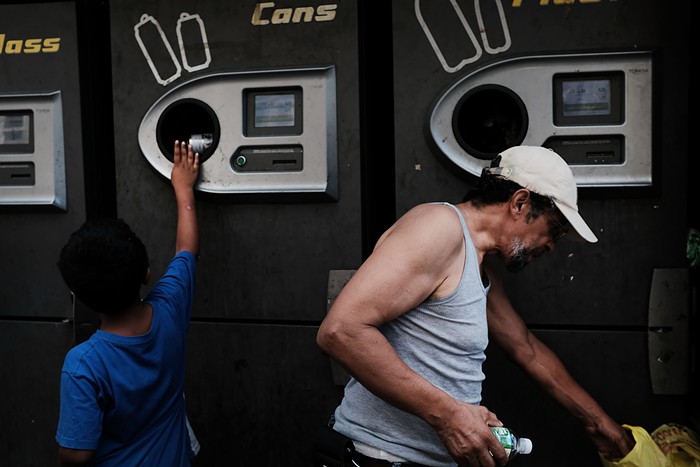THERE'S A CERTAIN DANGER in shrugging off one's complacency about eating meat. Once aware of the horrors of industrial meat production, choosing which animal protein to eat can become fraught with questions about how your pork cutlet came to be, shining pink under the fluorescent glow of butcher case lights.
Turning away from meat produced by disease-harboring concentrated animal feeding operations and mechanized, high-volume slaughter can be a difficult task—unless you're raising, slaughtering, and butchering the animal yourself. That's not so hard if you're living on a cattle ranch in Montana or if you happen to live in the French countryside and come from a long line of pig producers and butchers. However, for urban dwellers without access to land it's not an option.
Enter Camas Davis and the Portland Meat Collective. When I first spoke to her in September of last year, Davis had recently finished an apprenticeship in Gascony, France, with (you guessed it) a family of pig producers and butchers. The collective was just getting started.
"There are plenty of people who want to start buying meat directly from producers whom they know to have good practices," Davis told me. "Then there are people who want to be involved in the process of slaughtering or butchering, as well. So, if I can create a platform in which you choose to be a part of that process, it furthers the meat-eating culture. It furthers the awareness of how meat comes to our table."
Nearly a year later, the Portland Meat Collective has found its momentum, offering classes on whole animal butchery, as well as making charcuterie and sausage. With its new summer class schedule, the collective is set to advance the cause of conscientious meat consumption.
This is how it works: Based on a Community Supported Agriculture model, students who sign up for a class are also essentially purchasing their share of a sustainably raised and humanely slaughtered animal from a small local livestock producer.
During the class, professional butchers teach students how to break the animal down into specific cuts. Afterward, the class snacks on charcuterie and wine, talks about preparation, and leaves with their share of meat—close to 30 pounds per person.
It's a learning experience that most Americans haven't experienced since the 1800s, and student responses to learning whole pig butchery run the gamut.
"There's been a lot of different reactions," says Davis. "The main one I'm seeing is that people are mainly shocked that they can do this."
Chef Adam Sappington of the Country Cat, who's been butchering whole animals since his days at Wildwood, has been a Portland Meat Collective instructor since the first class at Zenger Farm.
"It was a surprise to us to see the diversity of the students," he recalls, remembering bike messengers, ranchers, warehouse workers, and foodies. "We all kind of looked at each other like, 'Holy shit, this is making a lot of sense.'"
But in terms of what students get out of the class (beside a whole bunch of meat), Sappington says, "It's all self-motivated. But the ones that really want to learn it, get it."
As an added bonus, Sappington offers a kind of continuing education to students who have taken the six-hour basic class.
"They come into the restaurant and sit down at the chef table and talk to me about what they're doing next with the belly or the jowl," he says, noting he's always ready to provide recipes and advice.
Sappington and Tray Satterfield of Pastaworks often teach whole pig butchery, but the collective also brings in special guests. This summer, those guests will include renegade Seattle butcher and charcuterie maker Gabriel Claycamp of Swinery Meats.
So yeah—Portland Meat Collective offers instruction from renegade chefs, the ability to develop a working knowledge of butchery, and certainly foodie bragging rights. But what else does the $225 price tag for the daylong class get you? Could knowing how to break down a whole pig actually help you reduce food costs in the long run?
"Definitely," says Davis. "It depends on what farm you're buying from, but if you can process it yourself, you're going to save money no matter what."
By eventually putting more money in your pocket through a skill that was lost in the misty agrarian history of America long ago, the collective is making thoughtful meat consumption way more than just an ethical fad.
Learn more about the Portland Meat Collective's summer class schedule at Davis' blog, ladebrouillard.com, or contact the Portland Meat Collective at info@pdxmeat.com.



















